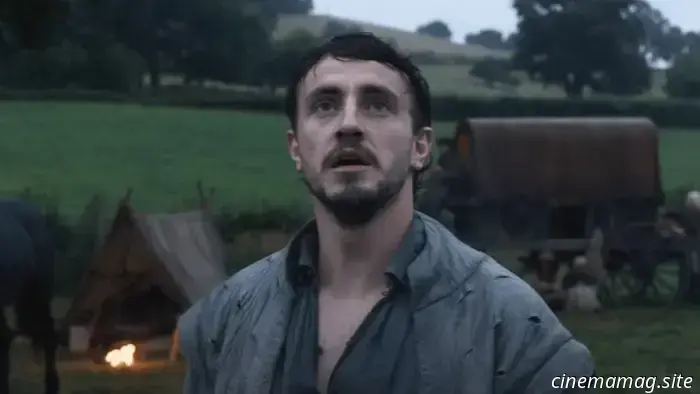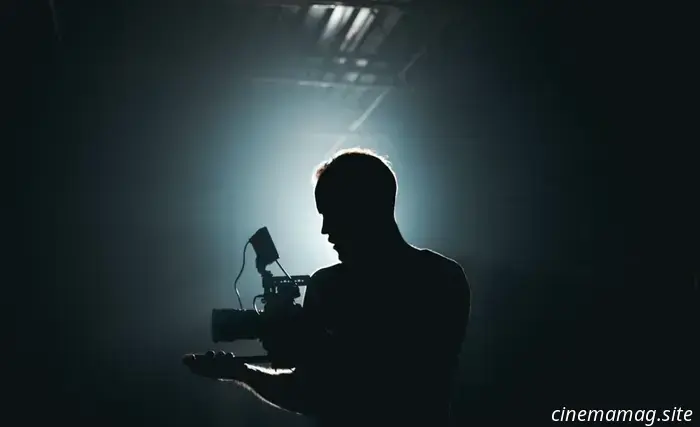
Richard Linklater's 15 Principles for Filmmaking: The Nouvelle Vague Director Discusses Love and Timing -
When we asked Richard Linklater, the director of Nouvelle Vague and one of our favorite filmmakers, to share insights about filmmaking, he tailored his advice for "young, aspiring directors," focusing more on the mental aspects rather than the technical. Linklater reflects on observations he may not have been fully aware of at the time but believes could be beneficial.
Currently, Linklater is experiencing a creative high point in his nearly 40-year career, which commenced with the release of Slacker in 1990, a film that helped ignite the indie film movement of the '90s. He followed it up with Dazed and Confused in 1993, showcasing mid-'70s Baby Busters and featuring some of Gen X's finest actors. His Before trilogy with Julie Delpy and Ethan Hawke depicted a couple from youth to middle age, and he crafted Boyhood, potentially his magnum opus, over a span of 12 years, achieving both a Best Picture nomination and a Best Actress Oscar for Patricia Arquette.
All of Linklater's films exude a genuine sense of casualness that can feel effortless in the moment but profound in hindsight. While his films may appear easy-going, he releases them at a remarkably consistent rate and commits fully each time. The challenge of making things appear simple perhaps explains the Academy's perplexing oversight in awarding him an Oscar.
In the past two years, he has released four films, including last year's sultry noir Hit Man, and "Hometown Prison," a segment of the documentary series God Save Texas, reflecting on his home state, where he has spent his entire career.
This fall, he presents two films that explore the creative process: Blue Moon, featuring Hawke as lyricist Lorenz Hart on the opening night of Oklahoma!, and Nouvelle Vague — now available on Netflix — which revisits the production of Breathless.
The 1960 film by one of Linklater’s most significant cinematic influences, Jean-Luc Godard, contributed to the popularity of the French New Wave and taught Linklater and others that films can be profoundly personal.
Despite his prolific output, Linklater shares Godard's feeling in Nouvelle Vague that he began his filmmaking journey later than he should have. As a co-founder of the Austin film scene, he approached filmmaking with the mindset of compensating for lost time.
While reflecting on the past, he is also forward-looking: he is in the process of shooting a film adaptation of the 1981 Stephen Sondheim and George Furth musical, Merrily We Roll Along, over a span of 20 years.
1. Fully commit to cinema. I can't think of any director of note or longevity who wasn't truly passionate about films — perhaps except for David Lynch. While there are roles in the industry, writing and directing must encompass your entire life. If you'd rather be doing anything else than watching, writing, shooting, editing, or reading about films, then pursue that instead; you won't have the all-consuming love necessary to overcome the myriad challenges.
2. Establish a solid foundation in cinema. This ideally comes naturally through your love for film, but being conscious and intentional about your growth isn't a mistake. Even after graduating from film school, you still have much to learn and lack experience. Prepare for years of dedication: arrange your life to immerse yourself in cinema as much as possible. If the idea of spending your life solely engaging with film seems limiting or you'd prefer to pursue other interests, then follow that path. It's worth noting that directors often have neurodivergent traits; if you're not fully immersed in that passion, you might enjoy a fulfilling and possibly more lucrative life in other areas of the film industry.
3. Gain experience by refining your voice. In my initial five years with a camera, I made numerous shorts—around twenty—and one feature, viewing them primarily as technical exercises rather than self-expression. I recognized that my cinematic ideas far surpassed my technical skills, and sought to catch up by immersing myself in the physical and technical aspects, rather than the narrative. I would create entire films focused on specific elements like lighting, camera movement, or editing techniques, trying different approaches to discover what resonated with me. It's beneficial to understand every aspect of filmmaking, as it enables you to collaborate effectively and appreciate the talents of others.
4. To be an effective director of actors, engage in acting yourself. I realized I wasn't a natural performer and had a clear inclination for behind-the-camera work, yet I understood that my goals were performance-driven. This realization pushed me to enroll in acting classes, which significantly shaped my development. I immersed myself in evening classes where I worked on scenes with peers, faced constructive critiques from a supportive teacher, and learned to navigate the creative process. This journey helped me overcome shyness and cultivate a rich understanding of acting, ultimately enhancing my skills as a writer and communicator. I even ventured into auditions, providing me insight into the actor's experience, which informs my methods when







Other articles
 Why an Increasing Number of Content Creators Are Pursuing Additional Revenue through Digital Programs and Online Offers
In the realm of entertainment, the spotlight frequently shines on glamorous premieres, red carpet events, and trending videos. However, behind the scenes, content creators—ranging from
Why an Increasing Number of Content Creators Are Pursuing Additional Revenue through Digital Programs and Online Offers
In the realm of entertainment, the spotlight frequently shines on glamorous premieres, red carpet events, and trending videos. However, behind the scenes, content creators—ranging from
 Comic Book Sneak Peek – X-Men of Apocalypse #1
X-Men of Apocalypse #1 will be available at comic book stores and digital platforms on Wednesday, and you can check out a preview of the issue below, brought to you by Marvel Comics... THE...
Comic Book Sneak Peek – X-Men of Apocalypse #1
X-Men of Apocalypse #1 will be available at comic book stores and digital platforms on Wednesday, and you can check out a preview of the issue below, brought to you by Marvel Comics... THE...
 Hiya Toys has released the Exquisite Basic Series figure of Burning Godzilla from Godzilla vs. Destoroyah.
Hiya Toys has announced the Burning Godzilla Exquisite Basic Series figure, showcasing the King of the Monsters in his fiery form from the 22nd entry in Toho's kaiju series, Godzilla...
Hiya Toys has released the Exquisite Basic Series figure of Burning Godzilla from Godzilla vs. Destoroyah.
Hiya Toys has announced the Burning Godzilla Exquisite Basic Series figure, showcasing the King of the Monsters in his fiery form from the 22nd entry in Toho's kaiju series, Godzilla...
 Art Relies on the Audience: Paul Mescal Discusses Hamnet
Robert Kojder speaks with Paul Mescal, the star of Hamnet… At this stage, if Paul Mescal is featured in a movie, it's advisable to take some tissues to the cinema. You're bound to shed tears; there's no chance of...
Art Relies on the Audience: Paul Mescal Discusses Hamnet
Robert Kojder speaks with Paul Mescal, the star of Hamnet… At this stage, if Paul Mescal is featured in a movie, it's advisable to take some tissues to the cinema. You're bound to shed tears; there's no chance of...
 How Unity is Changing the Film Industry: From Animation to Virtual Sets - MovieMaker Magazine
Originally a game engine, Unity has evolved into a pivotal element in a new era of filmmaking. Ranging from independent creators to major studios, Unity is transforming the way films are made.
How Unity is Changing the Film Industry: From Animation to Virtual Sets - MovieMaker Magazine
Originally a game engine, Unity has evolved into a pivotal element in a new era of filmmaking. Ranging from independent creators to major studios, Unity is transforming the way films are made.
 Book Review – Star Wars: Master of Evil
Ricky Church examines Star Wars: Master of Evil by Adam Christopher… Delve into Darth Vader’s beginnings in Adam Christopher’s Star Wars: Master of Evil, a new novel that investigates…
Book Review – Star Wars: Master of Evil
Ricky Church examines Star Wars: Master of Evil by Adam Christopher… Delve into Darth Vader’s beginnings in Adam Christopher’s Star Wars: Master of Evil, a new novel that investigates…
Richard Linklater's 15 Principles for Filmmaking: The Nouvelle Vague Director Discusses Love and Timing -
When we approached Nouvelle Vague director Richard Linklater, one of our favorite filmmakers, to share his insights on filmmaking, he chose to
